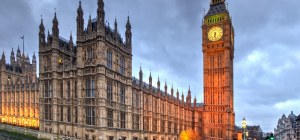41: Great Repeal Bill – We are experiencing technical difficulties

David Mundy Partner & Parliamentary Agent
The House of Lords continues with its eleven days of Committee stage debate on the Bill (now increased from ten). We have previously posted on Day 1, and on the debates on Days 2 to 5 so far they concerned amendments relating to particular aspects of EU law or policy.
This post focuses on two aspects of the debates, namely, those amendments concerned with how, in a technical sense, the Bill would retain existing EU law and those concerned with how the courts will interpret that law.
These debates were dominated by contributions from some of our most senior lawyers, including Lords Neuberger and Hope (recently retired from the Supreme Court), Lord Mackay (ex-Lord Chancellor and Lord Advocate) and Lord Pannick, who represented Gina Miller in the article 50 case. Unsurprisingly, the debate got quite technical at times…
Retained EU law: clauses 2 and 3 and status
On Day 3, the Lords discussed clause 2, ‘Saving for EU-derived domestic legislation’ (ie laws and regulations made by the UK consequent on its membership of the EU) and clause 3, ‘Incorporation of direct EU legislation’ (eg EU Regulations which apply in the UK as a consequence of the UK’s membership of the EU).
The purpose of both clauses is relatively uncontroversial. There is general acceptance in the Lords (as there was in the Commons) that UK laws which derive from the UK’s EU membership and EU laws which currently apply in the UK should be retained after Brexit, in order to avoid the now (in)famous ‘black hole in the statute book’. However, the Lords raised a number of technical difficulties with how clauses 2 and 3 purport to operate (many of which we previously discussed here).
First, the Lords considered that ‘EU-derived domestic legislation’ in Clause 2 ought to be confined to those enactments made under the powers conferred in the ECA, and not extend to other primary legislation passed in order meet EU obligations (Lord Pannick gave the example of the Equality Act) – so that the Government’s clause 7 power (to correct deficiencies) was correspondingly restricted.
Second, the Lords were concerned that there was a lack of clarity on the status of retained EU law, once incorporated into UK law by clause 3. The House of Lords Constitution Committee Report (discussed here) suggested that it all be classified as primary: that would most closely reflect its current status in domestic law, would provide ‘legal continuity and certainty post-exit’, and would prevent ministers from using delegated powers (other than the ‘Henry VIII powers’ contained in the EU Withdrawal Bill) from amending retained EU law in the future. (The Committee were also alarmed by the Solicitor-General’s suggestion in evidence to them that Ministers could use the powers in clause 17 of the Bill to determine the legal status of a particular retained EU law.)
The Government’s position is that retained EU law will have a unique status (sui generis), save for the purposes of the Human Rights Act (Schedule 8, part 2, para 19(1)) were it is to be considered primary. However, in Day 3’s debate, the Government appeared receptive to Paul Craig’s suggestion that it may be better (and relatively straightforward) to classify some transposed EU law as primary legislation (ie a law) and some as secondary legislation (ie a regulation) based on how it was made by the EU (although it then appeared to defend the existing approach on Day 4 – see the discussion on supremacy below).
Third, there was concern, particularly among Brexiteers in the Lords, that the UK would be transposing obligations in EU Directives adopted by the EU but not implemented by the UK, or which contained transition periods. The Government (helpfully) clarified that the Directives themselves were not being incorporated by clause 3, only the measures implementing Directives were being incorporated – if those measures did not yet exist, there was nothing to transpose.
But this gives rise to a fourth issue: What of those ‘directly enforceable rights’, which the ECJ sometimes recognised in EU Directives? The government explained that (under clause 4) any ‘directly enforceable rights’ in the Directive would be transposed, but only if there was an ECJ case recognising the existence of that right prior to Brexit. Lord Pannick found this:
‘a very odd approach because it means that the rights that are enjoyed after exit day in this area… depend on the accident of litigation… [and it] is also fundamentally inconsistent with the snapshot approach… because the Government’s approach will mean that rights will be lost, even though they were enjoyed in this country before exit day.’
Retained EU law: clause 5 and the concept of supremacy
Clauses 5(1) to (2) of the Bill provide that the principle of the supremacy of EU law applies only to laws passed before, and not those passed after, exit day. Clause 5(3) provides an exception to that rule where modifications are made after exit day if ‘the application of the principle is consistent with the intention of the modification’. On Day 4, Lord Pannick suggested this exception was unclear, and queried whether there was a need to retain the principle of ‘supremacy’ at all.
Lord Keen, for the Government, defended the current approach, and quoted the Bingham Centre’s report, which said:
‘We consider that the Rule of Law objectives of legal continuity and certainty are better served by the approach taken by the Government in the Bill. The principle of supremacy is well understood and its future role is very limited, being confined to the relationship between retained EU law and pre-exit UK law. Treating all retained EU law as primary legislation enacted on exit day, on the other hand, will increase legal uncertainty because it changes the settled approach and leaves unclear whether the interpretive obligation, to interpret pre-exit UK law so as to be compatible with retained EU law, continues to apply.’
This seems to suggest that the Government will be sticking with its current approach on both supremacy and the status of retained EU law.
The courts: clause 6(2) and ECJ decisions
Clause 6(2) provides that ‘a court… need not have regard to anything done on or after exit day by the European Court… but may do so if it considers it appropriate to do so’.
Lord Neuberger thought this clause would benefit from further consideration:
‘… the Government envisage that post-Brexit the UK courts will, at least in general, no longer be subject to the jurisdiction of the ECJ and so will be free to interpret EU law as they see fit. This gives rise to two closely related problems. The first is: what principles of interpretation are to be applied to that retained EU law? Secondly, what use can be made of ECJ case law when carrying out that interpretation exercise?’
He went on to explain that Clause 6(2), in its present form, indicated that there was a presumption against following decisions of the ECJ but that UK judges could follow such judgments if they thought it ‘appropriate’. That suggested that judges would be expected to make decisions that were essentially political, eg whether to align the UK with an ECJ interpretation against the statutory presumption for policy-type reasons, or to depart from the ECJ interpretation. (The other Lords agreed that ‘appropriate’ was unhelpful political, and ‘relevant’ would be better).
In Lord Neuberger’s view, if pre-Brexit ECJ decisions were determinative on questions of interpretation, then it would be sensible to treat post-Brexit ECJ decisions in the same way (at least where the retained legislation has not been changed). But if that was not the case, Parliament should clearly state the new policy on interpretation. Similarly, Clause 6(4) was unhelpful in providing that the Supreme Court should decide whether to adhere to pre-Brexit ECJ decisions or whether new principles of interpretation should apply, because the existing principles (ie to sustain ever closer union or single market freedoms) were no longer relevant interpretative considerations in the UK. He set out a range of alternative approaches, which he hoped would be subject to proper scrutiny by the Government.
Lord Hope, drafting on his feet, then came up with his own formulation of clause 6(2):
‘A court or tribunal need not have regard to a judgment or decision given by the European Court on or after exit day, but it may have regard to it where it considers this relevant for the proper interpretation of retained EU law.’
Lord Keen, for the Government, said:
‘We will go away and consider the various formulations, and I believe it would be sensible for the Government to engage with various interested parties once we have come to a view about how we can properly express what we all understand is necessary policy guidance in the context of this exceptional step.’
The courts: clause 6(3)(a) and the general principles of EU law
The Lords were also concerned about how general principles of EU law (eg proportionality) can be used to challenge the validity of retained EU law after exit day.
The Government’s view is that:
- clause 6(3)(a) provides that questions as to the meaning of retained EU law are to be decided ‘so far as relevant’ in accordance with retained case law and ‘retained general principles of EU law’ – the Solicitor General has written a letter to Robert Neill MP on this point;
- but these general principles are not rights within the meaning of clause 4 (which converts into domestic law other EU rights, remedies etc. arising under EU treaties and directives) and (by Schedule 1, clause 3) do not support a cause of action; and
- there is a real risk of allowing ‘general principle’ challenges to continue indefinitely, which would not be in keeping with the intention of returning sovereignty to Parliament.
The Government did bring forward an amendment in the Commons to allow such challenges within three months of exit day (Schedule 8, para 27(5)), mirroring the period normally allowed in the context of applications for judicial review, to strike a balance between ensuring that, on the one hand, individuals and businesses will still have the opportunity to bring these challenges and, on the other hand, delivering the result of the referendum and maintaining parliamentary sovereignty.
The courts: schedule 1, para 4 and Francovich
Paragraph 4 of Schedule 1 of the Bill removes, from exit date, the right in domestic law to damages in accordance with the rule in Francovich (ie that EU member states can be liable to pay compensation to individuals who suffered a loss by reason of that state’s failure to transpose an EU directive into national law). The Government resisted Lord Pannick’s call for a change which would have retained that right in limited circumstances, namely, where a claimant cannot get damages because it cannot prove misfeasance in public office, but can prove that the breach is sufficiently serious and that the existing law was intended to confer a right to damages.
But the Government accepted that the proviso in paragraph 27 of Schedule 8 (which allows Francovich damages for claims raised prior to exit date), created a lacuna in respect of rights existing as at exit date but where no claim has been made. The Government indicated it was prepared to address that issue, so we may see an amendment on report in that regard.
Enjoying the blog? Why not try the Great Repeal Bill Blog playlist on Spotify.
‘We are experiencing technical difficulties, please stand by’ (Julien-K, Technical Difficulties)
Written with Aaron Nelson









